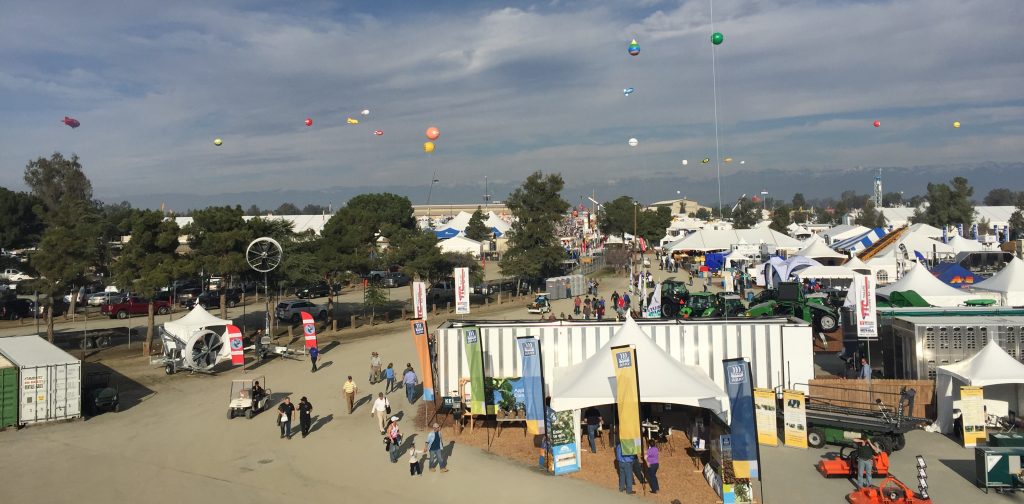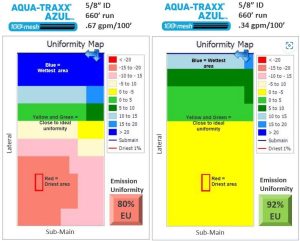Source: ABC News
Amidst one of the worst droughts in California’s history water remains at the forefront of agricultural issues, and as the World Ag Expo in Tulare celebrates 50 years one can see how irrigation techniques have changed throughout the world and state.
“50 years ago we were flood irrigating you know, gravity siphon pipe irrigating,” said Inge Bisconer, Toro Micro Irrigation.
Four decades ago drip irrigation was introduced and over the years widely adopted. Like the almost 1,500 companies at the International Agri-Center each irrigation product is aimed at improving efficiency for growers.
“People often adopt drip because of water issues, they fall in love with it because of production advantage,” said Bisconer.

Products like drip and micro irrigation products deliver water and nutrients directly to the plant.
Even though we have seen a lot of rain in the last few weeks experts are saying the drought is far from over.
“Even as Lake Oroville is going over the spillway and all those things that are visually apparent, the thing we have to keep in mind is ground water is still an issue,” said Paul McFadden, Toro Micro Irrigation.
Thanks to technological advances growers are able to better understand how to manage and make the most out of their water. Just like Hortau out of San Luis Obispo.
“We’re evaluating plant stress on a daily basis so we can see exactly what the plant needs so we– never put excess water on,” said Doug Larson, Hortau.
Larson shows us how their product can, in real time, tell a farmer how much and how often to water certain plants.
Though soil tension technology has been around for years it’s drastically improved. As for what was done 50 years ago Larson said it was a guessing game.
“When we were kids we basically used a shovel and stuck it in the ground and pushed on it to see if we could penetrate it through the profile. That gave us an understanding of how much water we were putting.”
When it comes to the Ag industry Larson says knowledge is power.
“As an industry we need to continue to grow, educate each other so we can become better and better at what we’re doing.”

Original post by Vanessa Vasconcelos via ABC News




